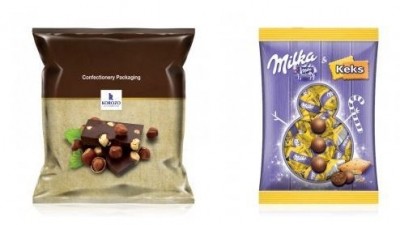'It's still an attractive market': How are companies overcoming political instability in Turkey?
This content item was originally published on www.foodnavigator.com, a William Reed online publication.
For Akan Abdala, co-founder of FutureBright Research and Consultancy, Turkey’s selling points are obvious: aside from its strategic location and the fact it is the region’s only Islamic democracy, it also has a young and fast-growing population.
His biggest piece of advice for companies wishing to do business in Turkey is to work with regional partners who understand the local culture.
“Big brands always need reliable partners so I think now people are a bit afraid, let’s be sincere, but I think Turkey will still be the most stable partner for them than any other country. So even if this instability goes on, Turkey’s importance in terms of business will go up.
“[…] You still have to do business. I mean, you have a market there and you want to sell your products to them.”
Future Bright works with around 250 brands, including Unilever and Kraft, and Abdala says most of the current feelings of apprehensiveness are from local companies. “Global companies are braver than us!” he said.
Local distributors understand the local culture
Regional sales manager at Hyet Sweet, Youssef Hamayet Elmili, confirmed that working with local distributors is a necessity – particularly in a big country like Turkey that used to be an empire.
"The necessity we see in this market is to work closely with distributors to touch the different regions. They understand better than us the different cultural aspects. For example, Gazientep is a rich city in terms of production of beverages – they know how to approach these industries."
But as for the political instability, Elmili sees this as a global rather than local problem.
“We cannot be influenced by political instability. I personally live in Paris and we have been victims of attacks in the past two years. Does it affect the market? No, it just means we have to face it. This is part of globalisation," he said.
“We have an optimistic picture of the future in this market. The real concern of people today is to stay fit and to eat well which means to eat less sugar and calories. [This] is a good sign for us as a sweetener producer.”
But the war in Syria is creating logistical problems
Nevertheless, this optimism for the immediate future is not shared by everyone. Murat Yasa, owner and managing director of Aromsa, a Turkish flavour and extract company, spoke to FoodNavigator frankly about the logistical problems created by the political turmoil in neighbouring Syria.
Aromsa has offices in Russia, Iran and Algeria, manufacturing sites in Turkey and Germany and exports to around 25 countries - but while they could previously ship from Turkey to Jordan in just three days, it now took 27.
With little control over such macro problems he feels increasingly powerless, but is committed to continuing to work for the sake of his company and its employees. “[I will] continue to work, respect my employees and not give up. I should not sell my company and leave my workers. I have to continue to work.”
Objectively speaking, however, he said if he was a foreign company he would not be inclined to invest in Turkey at the minute.
'It's an attractive market'
Perhaps things are easier for companies just entering the market as they are more agile?
Juan Cuervo-Arango Méndez is country manager for Turkey at IGH Flavours and Technology, a Spanish company which opened a Turkish subsidiary three years ago.
“These days the situation in the Middle East with all the conflicts makes the food sector a little bit unstable but for us, because we are growing, it doesn’t affect us as much as other companies,” he said, adding that IGH saw itself in Turkey for the long-term.
"For us and a lot of companies Turkey is an attractive market because of the potential – not only for Turkey itself but all the Middle Eastern countries. The manufacturers here export to a lot of countries around the world. We saw that potential and decided to open the first subsidiary in Istanbul ago to develop a base for a future …in Turkey and the Middle East.







